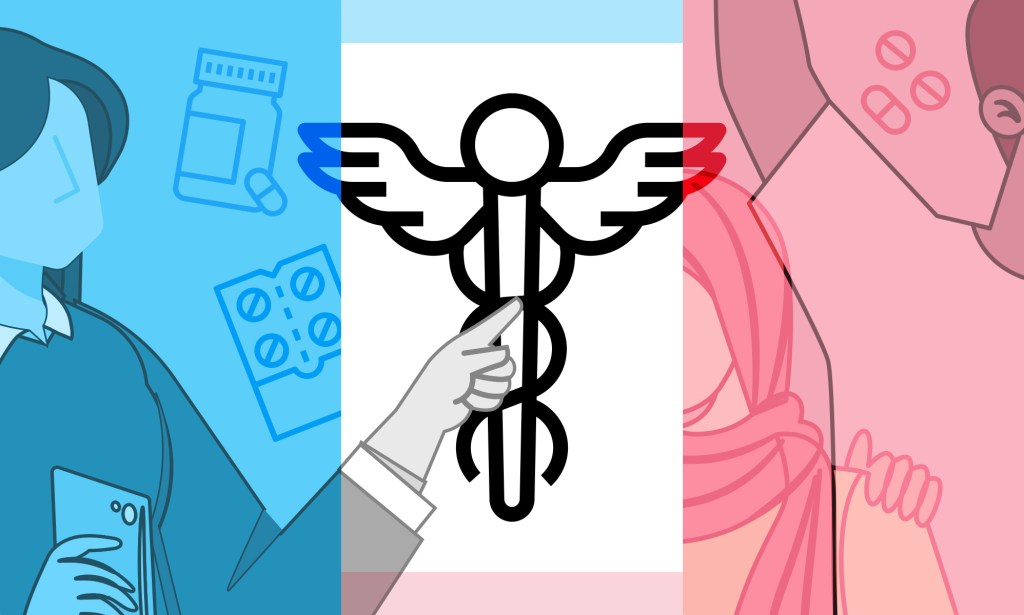Trans youth will no longer be prescribed puberty blockers, NHS England says
Trans youth will no longer be prescribed puberty blockers at NHS England gender identity clinics in a new “blow” to gender-affirming healthcare.
Puberty blockers are a type of medicine that prevent puberty from starting by blocking the hormones – like testosterone and oestrogen – that lead to puberty-related changes in the body. In the case of trans youth, this can delay unwanted physical changes like menstruation, breast growth, voice changes or facial hair growth.
On Tuesday (12 March), NHS England confirmed the medicine, which has been described as “life-saving” medical care for trans youth, will only be available to young people as part of clinical research trials.
The government described the move as a “landmark decision”, Sky News reported. It believed such a move is in the “best interests of the child”.
Trans youth charity Mermaids said the announcement is “deeply disappointing” and represented a “further restriction of support offered to trans children and young people through the NHS, which is failing trans youth”.
“There were virtually no first appointments offered in 2023, with ever-growing waiting lists of over five years,” Mermaids said of the current gender referral process.
The statement continued: “Those currently prescribed puberty blockers won’t see any changes to their treatment, and this is a pause on prescribing – not a ban.
“It’s also important to note that puberty blockers can be just one possible part of a young person’s gender journey.
“However, this news still comes as a blow and will deeply affect our communities.”
Mermaids said it will continue to “advocate strongly for access to timely, holistic and supportive healthcare for trans youth” – which includes access to puberty blockers for “those who need them”.
The charity said everyone, including trans youth, deserve access to healthcare and to “live happy and healthy lives”.
Last June, NHS England said it would only allow under-18s to receive puberty blockers in exceptional circumstances under what it described at the time as an “interim policy”.

A statement from the healthcare service said: “Outside of a research setting, puberty-suppressing hormones should not be routinely commissioned for children and adolescents.”
Puberty blockers have been well-studied and widely-used since the late 1980s. They have been routinely used to pause puberty in adolescents experiencing gender dysphoria, treat children who enter puberty too early and help adults living with a range of other medical conditions.
The NHS England website states that its Gender Identity Development Service (GIDS) advises puberty blockers are a “physically reversible treatment if stopped” though it’s “not known what the psychological effects may be”.
However, there is substantial evidence that access to puberty blockers and other forms of gender-affirming healthcare encourage positive mental health outcomes for trans young people.
The move by NHS England to pause prescribing puberty blockers comes amid a broader conversation about trans healthcare in the UK.
In 2022, the healthcare service announced that its Tavistock clinic, the only dedicated provider of care for young trans and gender-questioning people, would be shutting down by spring 2023.
It said the service would be replaced by at least two regional service centres in a move towards a “holistic and localised approach” to trans youth healthcare after it was criticised in an independent review led by Dr Hilary Cass.
However, by February 2023, there were reports that no locations, staff or services were put in place to replace Tavistock. In May, it was revealed that the replacement clinics weren’t ready, so the Tavistock clinic would remain open in the interim.

